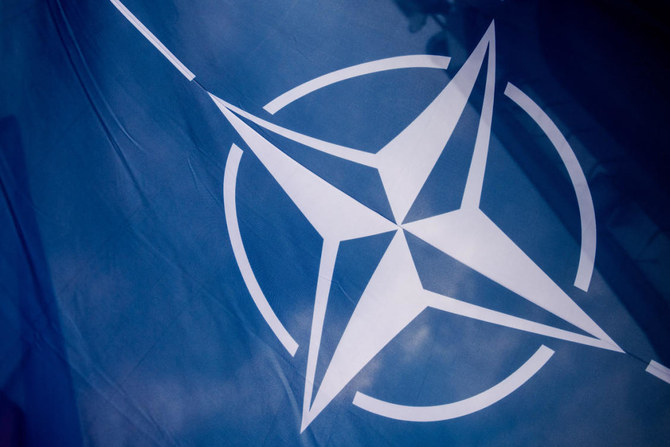ANKARA: Turkiye’s parliament on Tuesday ratified Sweden’s NATO membership after a two-year standoff marked by diplomatic bargaining and heated debates between Ankara and its Western allies.
Out of 346 members of parliament, 287 voted in favor and 55 against.
The next step in this process involves Turkiye’s President Recep Tayyip Erdogan signing the protocol into law, paving the way for Stockholm to seek Hungary’s approval as the final step toward becoming the 32nd member of the NATO military alliance.
Hungary’s Prime Minister Viktor Orban has already expressed his intention to invite his Swedish counterpart Ulf Kristersson to “negotiate” on the matter.
Ankara’s approval has implications for Turkiye’s relations with the US and others.
All eyes are on whether Turkiye’s support for Sweden’s entry into NATO will clear the way for a multi-billion-dollar deal to buy US F-16 fighter jets, and the removal of the arms embargo by Canada.
Erdogan is quoted as saying that President Joe Biden linked the sale of F-16s to Turkiye with Sweden’s NATO accession during a phone call in December.
The US Senate Foreign Relations Committee Chair, Ben Cardin, said on Tuesday that congress is awaiting the completion of the accession protocols before proceeding with deliberations on the arms deal.
The Biden administration is expected to ask the US Congress to approve the F-16 deal, according to reports.
In response to the parliamentary vote, US Ambassador to Turkiye, Jeffry L. Flake, said on social media: “I greatly appreciate the Turkish parliament’s decision to approve Sweden’s entry into NATO. Turkiye’s commitment to the NATO Alliance clearly demonstrates our enduring partnership.”
Turkiye also recently approved Sweden’s participation in NATO’s Steadfast Defender 2024 military exercise, which will commence this week with 90,000 NATO troops in a bid to deter what is viewed as Russia’s expansionist ambitions.
Last year, Turkiye, Sweden and Finland agreed on a trilateral memorandum, where Stockholm and Helsinki committed to update their counterterrorism legislation.
While Finland fulfilled its part of the bargain and joined NATO last April, Erdogan accused Swedish officials of being too soft on the outlawed Kurdistan Workers’ Party, or PKK, and not addressing Ankara’s security concerns effectively.
Turkiye and Sweden later inked a security deal that covers their cooperation to fight terrorism. NATO’s Secretary-General Jens Stoltenberg also made a commitment to appoint a special coordinator for counterterrorism within the organization.
Paul Levin, director at Stockholm University Institute for Turkish Studies, thinks that Sweden-Turkiye relations, while relatively solid on several fronts, may have cooled due to the drawn-out negotiations.
“I expect the Swedish government to live up to its pledges regarding its continued fight against terror and I assume that at least as long as this government is in power they will continue to support EU engagement with Turkiye, even if Sweden has very little say when it comes to the EU,” he told Arab News.
“Swedish exports to Turkiye are larger than to all of Latin America so Sweden also has an interest in maintaining good relations,” Levin added.
As part of the diplomatic bargaining between Stockholm and Ankara, Sweden tightened its counter-terrorism legislation, and its courts complied with some extradition requests by Turkiye.
Levin argued that many Swedes are angry at what they view as Erdogan’s delaying tactics, and his attempts to link the NATO accession to the arms deal.
“And such sentiments will have an impact on relations in the long run,” he said.
Meanwhile, Erdogan is set to meet with his Russian counterpart Vladimir Putin in Kazakhstan on Wednesday and Friday, during the Astana Group meetings on Syria.
In addition, with the Swedish accession protocol expected to be ratified by Hungary in a few weeks, NATO ministers of defense will meet in Brussels on Feb. 15 under the chairmanship of Stoltenberg.
Ziya Meral, lecturer in diplomatic studies at SOAS University of London, said this was not a silver bullet that would solve all the complex strategic divergences and disagreements between Turkiye and other NATO members, particularly with the US.
“Ankara understandably sought to maximize the process in negotiations and it made a strong case for its views and interests. While we all knew the limits of what was possible out of such negotiations, it has hopefully provided a basis to address some of the key points,” he told Arab News.
“A stronger NATO is in Turkiye’s interests, and Sweden is an important country to have as an ally,” Meral added.
For Ozgur Unluhisarcikli, Ankara office director of the German Marshall Fund of the United States, the Swedish government had already accommodated Turkiye’s concerns within its political constraints.
“Meanwhile, prospects for improved relations with Europe and the US remained elusive as long as Turkiye maintained its stance on stalling Sweden’s NATO entry,” he told Arab News.
“Making the assessment that the opportunity cost of delaying Sweden’s NATO accession outweighed additional gains to be made from doing so ratified the accession,” he added.
Now that Turkiye has taken this step of ratification, Unluhisarcikli expects reciprocal moves by Europe and the US.
“It is likely that Brussels will take decisions to facilitate structured foreign policy dialogue with Turkiye and unblock high-level dialogue including on the accession process,” he said.
Unluhisarcikli thinks that Washington can be expected to finalize the sale of a new fleet of F-16s to Turkiye and perhaps extend an invitation to Erdogan for an official visit to the White House.
“If such a visit takes place, it should be used as an opportunity to use the momentum to address the S-400 crisis and lift the CAATSA (Countering America’s Adversaries through Sanctions Act) sanctions imposed by the US on Turkiye over its purchase of Russian missile defense system,” he said.
























